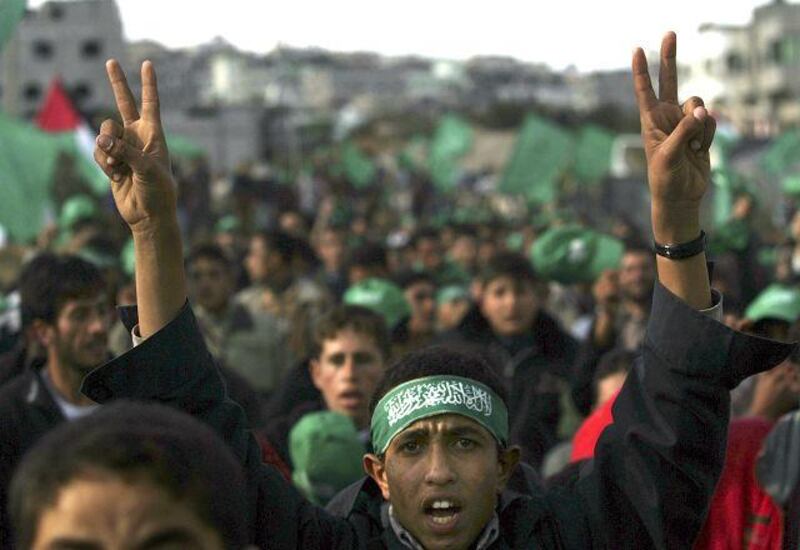DOHA // The plight of Arab Islamist movements might be best summed up with a look at the recent political history of the Gaza Strip. "If Hamas could take one thing back from the last few years, it would be winning the 2006 election," said Shadi Hamid, an analyst of Islamist political movements and the deputy director of the Brookings Doha Centre. "Abu Mazen [the president, Mahmoud Abbas] disowned them and the West refused to accept them."
In the ensuing years, Gazans have faced severe deprivation and the peace process has been derailed. As a result, Hamas has begun to reassess its nature, as have a handful of other Islamist movements across the region. "Islamists are trying to steer a course between governance, political processes and resistance," said Hady Amr, the director of Brookings Doha and the moderator of a discussion here last week that highlighted the gradual learning curve of these groups.
In Egypt, Morocco, Jordan and the Palestinian territories, widespread backlash from Bush administration policies led to considerable electoral gains for Islamists in 2005 and 2006. More recently, these movements appear to have stagnated: Egypt's Muslim Brotherhood has been paralysed by suppression and internal divisions over reform; its Jordanian chapter has been severely restricted, and Hamas and Hizbollah are engaged in internal debate whether to focus on militancy or electoral politics.
Mr Hamid sees the crisis as a sign of maturity. "'Instead of focusing on elections'," he imagined Islamist leaders thinking, "'maybe we should build our social infrastructure, focus on dawa, or preaching, education and social services, and take a step back from the political arena to rebuild and regain our strength'." Hizbollah, for instance, maintains a military wing focused on resistance to Israel, provides social welfare services with a budget of more than US$1.5 billion (Dh5.5bn) and fields candidates for parliamentary office.
Yet many western observers fail to look past the movements' militancy and support of Sharia. "In the West, jihad is equal to terrorism," said Nizar Hamzeh, the dean of arts and sciences at the American University of Kuwait. "For Islamists like Hizbollah," he said, "it is a comprehensive word for action - social, cultural and political." Arabs seem to agree. According to Fares Braizat, the head of research at the Social and Economic Survey Research Institute (Sesri) at Qatar University, about 80 per cent of Arabs see Hamas and Hizbollah as legitimate resistance movements rather than terrorist organisations.
Still, western officials may be overly concerned about Islamists' religiosity and advocacy of Sharia. Nearly three-fourths of Jordanians identified themselves as Muslims first, Jordanian second and Arab third in the Sesri survey. And yet in 2003 elections, Islamists received only 14 per cent of the vote. Mr Braizat said he believed that most Islamist parties, given the chance to take power, would turn into a Muslim version of Christian Democratic parties in Europe. "Don't expect them to be liberal," he said, "but expect them to be democratic."
Yet most of these groups are not sure they want to come to power, according to Mr Hamid. He cited the failure of Algeria in 1991, when Islamists won elections but were pushed aside by the military before taking power. "The ghost of Algeria haunts Islamists today," he said. Many believe "if they win a large number of seats, not only will the regimes clamp down but the international community isn't ready for it either."
The US president, Barack Obama, has worked to engage more deeply with nonviolent Islamist groups. But the panelists believed this had not yet marked a sea change. Perhaps forgetting the Gaza Strip, Mr Hamid wants western powers to give Islamist political groups the freedom to win elections outright. "Let's give them a chance and see what happens," he said. dlepeska@thenational.ae






